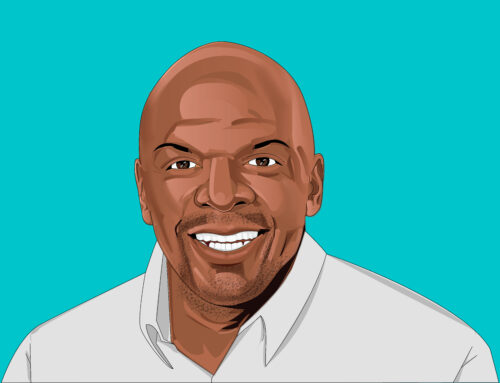Kalee Stockley Talks Challenges in Recruiting & Best Tactics for Hiring!

In this episode of Talent Chronicles, Kalee Stockley joins us to talk about her experience as a Talent Acquisition Specialist, for the last eight years. Kalee is a well-versed expert in the industry, having worked in a multitude of spaces, ranging from Hospitality, Healthcare, and Energy Manufacturing. Kalee talks to us about the challenges she faces when recruiting for positions, and the tactics she uses to hire the best-fit candidates for the job.
JCSI: Hi everybody. This is Bergin Sullivan with JCSI. I’m here today with Kalee Stockley joining us for an interview in our Talent Chronicles series. Thanks so much, Kalee, for being here today.
Kalee Stockley: Thank you so much for having me
JCSI: So, you’ve been in Talent Acquisition for over eight years with experience starting in Hospitality at Ocean Properties Hotels Resort, and currently work as the Talent Acquisition and HR Specialist for Versant Power. Can you give us a quick background of your work experience and tell us a little bit about how you got into Talent Acquisition?
Kalee Stockley: Absolutely. While I was at the University studying for my degree in Human Resource Management and Business, I had the opportunity to work for a hospitality organization. While there, I worked on what my strengths were as well as some hard lessons on where I needed to grow.
From that experience, I determined that recruitment was kind of where my true passion was lying. While finishing my HR degree, I was given a great opportunity to work as a Recruiting Coordinator for a well-known healthcare organization in Maine, called Northern Light Health. I held a few different roles in Talent Acquisition and Physician Recruitment.
During this time, I had the privilege of working with some exceptional leaders who helped me grow and build a foundation for success in Talent Acquisition and Recruiting. Through their guidance and insight, they shared principles with me such as talent strategy, sourcing, attracting talent, the importance of good data, time management, and effective communication. It really carried with me and set me up well for my current position.
Currently, I own all the Talent Acquisition within Versant Power. I am responsible for partnering with leaders to fill vacancies and staffing new departments within the organization and creating talent strategies. I also own the recruitment and onboarding process from start to finish.
This includes developing sources and strategies, building a talent community, working closely with our communications team around job advertisements, and all social media engagement on those postings. In addition, I also partner with our employees internally to help them reach their career goals. That includes interview and resume support and discussing any current vacancies that may match their skillset or transferable skills. They may utilize in-house talent in setting up our current employees for success through development and coaching and internal promotion is something that is extremely important for me, as well as for the organization I am part of.
JCSI: That’s awesome. That’s definitely a lot of responsibilities. Due to working in a rural area, what are some challenges you face when trying to recruit for those new positions?
Kalee Stockley: Recruiting in this region can be difficult at times. In both organizations I recruited for, our territory spans across the whole state of Maine. So, when looking at an aging workforce, with smaller populations, there’s not always a steady stream of candidates specifically in specialties, such as IT, Finance, or Engineering. Even in the last few years, companies really have had to learn to adapt and have conversations about future work that offer remote and hybrid options. Because now, you are not only competing with businesses in your region and state, but you’re also competing with out-of-state organizations through remote work.
JCSI: And what would you say are some successful strategies that you’ve found that work best for your location?
Kalee Stockley: I could probably talk about this all day. I promise I won’t. But of course, when you look at your social media job postings on platforms like Indeed or LinkedIn, building a town community is all extremely beneficial, but again, that’s not really a new strategy. And really anyone working in the recruitment and talent space utilizes those practices.
When I think specifically about location, a few things come to mind. The first thing is employee experience at Versant Power, a significant amount of our candidates that apply are because of an employee referral. One of the wonderful things about Maine is being in a more rural community is that everyone knows someone who knows someone. So, when employees are developed, given opportunities for advancement, and are happy in their careers; they’re more likely to tell others, peers, and friends about their experiences.
I was recently on an interview and the candidate shared with me that he was at a social gathering and one of our employees just happened to be there. He had overheard him talking about how he truly loved his job. And the candidate said, “Wow, I don’t know the last time I heard someone say that they love their job.” The employee talked about his experience and the candidates filled out an application the following week. This really is just one example of dozens I’ve had heard, even over the last few months, of employees being our allies
Another way to utilize this is using job flyers. When I have an opening, I collaborate with our communications team and develop a flyer. Of course, we post on our social media pages specifically on Facebook and LinkedIn. Then our employees and people within our community share these flyers and they reach an extremely wide net of people within our demographic and state.
With these flyers, we have received a significant number of applicants. Really just per requisition. They’ve increased significantly since we started this practice. And the other thing that we have found to be fruitful is partnering with local universities and colleges.
In the state of Maine, we have the privilege of having some excellent universities. Not only making a point to attend virtual or in-person career fairs at local colleges but also forming true connections. This includes following up on a regular basis, sharing what’s going on in the organization through our regularly scheduled email, making a point to reach out to program directors, or having a quick lunch and learn to talk with them about interview best practices.
This seems like a basic recruitment task. They may not fill the requisition that you have at that very moment. However, with a bit of patience, it can have a huge benefit to an organization. Especially when you look at growing industries, such as IT, Security, and Finance. We sometimes have a challenge finding local talent within this competing market. Getting them connected with an alum from that school, or someone who is studying in that same field may be beneficial when looking for candidates. When that student is getting ready to graduate and is looking at potential companies and careers, since they took the time to create connections early on, they’ll keep you at the top of their minds when they’re ready to enter the working world.
In the state of Maine, we tend to see a lot of boomerangs. This means people grow up here or maybe go to school here but then move away. However, a few years later they end up returning. So, I think now more than ever especially as we’ve seen the effects of the pandemic, people are opting for more rural communities and states. This is really showing the students that you don’t have to leave to have a successful fulfilling career.
And for my last point, finally, culture and having a strong brand. In both organizations when I was in my role, I was kind of amid a brand change. When we were talking to candidates about why they should come work for our company, the overall compensation benefits were time off. Paid time off is a huge part of the conversation. However, most companies have those offerings, but it’s identifying what truly sets your job and your company, apart from the rest and being able to tell a story. Our brand communication team did a series of videos, highlighting different employees around the company, sharing their stories and why they love working for Versant Power. This is one of the most powerful tools I have as a recruiter. It really gives me the ability to share a testimony with a candidate and have them be able to put themselves in the place of that employee. It really gives them a look into our commercial and what it would look like if they were to be employed with us
JCSI: Okay! So, circling back to how you had mentioned working with universities and colleges. Do you offer any internship programs for the students?
Kalee Stockley: We certainly do! I’m working on launching a new internship program currently, but yes, our Engineering internship is very well done and we’ve had relations with many of the local universities and the engineering programs for many, many years. But again, we’re looking to kind of dive in a little bit more and implement that throughout the organization through Finance, IT, HR, even Communications. We’re looking to stretch that program around the organization as well.
JCSI: Oh, that’s awesome. I’m sure that brings in a lot of candidates too once they graduate.
Kalee Stockley: Yeah, absolutely.
JCSI: What would you consider to be your ideal company culture?
Kalee Stockley: I’ll keep it simple. My ideal company culture is working in an organization where each individual, team, and employee is passionate about what they do and is passionate about the mission and the values of the company. Working collaboratively to achieve a common goal. Each person brings something different to the table, a place where employees are empowered and encouraged every day to do what they do best and are given tools to grow, learn, and develop themselves into professionals and are awarded for those achievements. When companies have employees who have a sense of purpose, it then creates retention and a strong community within a company.
JCSI: I love that last sentence you just said when we’re interviewing potential candidates! What main characteristics do you look for to match up with your company’s culture and that ideal company culture that you look for?
Kalee Stockley: In my role, I have the privilege of sitting in on many interviews, ranging from line workers, customer service reps, IT managers, and leadership. They can see, of course, all kinds of different requirements and skillsets. But a common thing that comes to mind is passion. Having a candidate open up and share what they’re passionate about in their career goals and really putting themselves in the position and what it would look like if they were to collaborate with a different company. No matter what position you’re in, there is always some degree of working with others. We want people that are willing to listen and work well within a team. My favorite interview questions are the ones that talk about teamwork in the workplace.
Additionally, I truly appreciate it when someone shares with us about a mistake or error in their work, that reflected on them, and then they share what they learned from that experience and how it impacts their work today. Being able to recognize a time that they suffered from their mistake, and how they benefitted from fixing the issue, really speaks to someone’s character. I think it was Dr. Seuss who said, the more you learn, the more places you go. Admitting that you may not have all the answers right away, but being willing to learn, absorb and be teachable.
JCSI: Definitely! I’m not sure if you guys have switched to, or maybe you’re starting to kind of do a hybrid model for interviews, but within virtual interviews, do you find it difficult to get those points across and really connect with the candidates?
Kalee Stockley: I think it was something that we had to navigate through. And, you know setting up the manager as well, and being able to kind of give the manager ability and confidence to help facilitate the interview. I think it really helps with the awkward pauses. It was a learning curve, but I’m finding the more adept people are getting into the environment, the easier the interview and virtual environment is. But it was certainly a struggle at the beginning with the awkward pauses and people being on, and you trying to figure out the technology part of things. But I think now that we are two years in, people have come a long way.
JCSI: What would you say you find to be the most beneficial way to support your hiring manager or managers?
Kalee Stockley: I have a couple of things… I think first and foremost is ensuring you, as a recruiter, do your homework. Understanding what the role is, what the key functions of the department are, why there is a vacancy, and how this role impacts the business. Also, determining what the market looks like for these types of positions I always encourage meeting with your hiring manager in a position, for maybe a position intake meeting, to discuss the vacancy in the department. Really putting myself in the hiring manager’s shoes. How is this vacancy impacting their work? Make sure you’re asking questions about a department’s culture, their leadership style, and what the ideal candidate looks like. Again, having that information really helps when you’re speaking to candidates as well. So, you’re not just reading off the responsibilities and qualifications of the job description
Also, ensuring the Hiring Manager has a clear understanding of the recruitment process flow. How does the recruitment process work? What goes into sourcing? What am I going to do to fill their position? I created a workflow that they provide to all managers, so they have a clear visual of how the process works. It’s not just a discussion of what I’m responsible for as a recruiter, but what they’re responsible for as a Hiring Manager. Which then kind of goes into my next point of giving practical timelines. As I said, I’m the sole owner of talents. I have a lot of other managers and a lot of other areas of the business I support. So, trying to give clear timelines for what they can expect for the next steps to move forward and not to overpromise or over-commit myself. It’s especially important when you’re building a relationship with, and even with a new manager to understand your work style and, how things work. Then, being available for questions, setting up regular meetings as you move into the next stage, if it’s a harder position to fill giving them regular updates on the efforts that you’ve made to fill their position, and always remembering that recruitment may not always be top of mind to the hiring manager.
This is not their everyday world. They may be doing a hundred other things that are not what I do every day. So, remembering you are the subject matter expert and being a partner and understanding how this vacancy is impacting them.
JCSI: Great point! What would you say is the best approach to keeping those Hiring Managers engaged in the hiring process? Even though that’s as you just mentioned, not their top of mind on a day-to-day basis.
Kalee Stockley: I think it goes back to clear expectations on what their roles are, and what their deliverables are as a Hiring Manager. I think sending them to the job posting, encouraging them to share that among their peers and colleagues in the industry, or maybe any professional organizations they’re a part of providing interview support. I have a presentation I put together on the do’s and don’ts of interviewing as well as the importance and the methodology around behavioral interviewing asking for their input around an interview guide on what questions do they want to highlight? How do they want the conversation to flow? Really giving them structure and the confidence of how the interview will run and allowing them to have the tools ahead of time, so they can anticipate how the conversation will flow. That way they, can focus on understanding the candidate and not worrying about what’s to come next. I always try to encourage having a follow-up call after the interviews as well. Since it’s not at the top of their minds, they are still ready to discuss the position with those candidates.
Once a candidate is selected and an offer is made, it is important to keep the Hiring Manager informed on where the candidate is at in the process. Candidate experience is crucial, especially in this environment where we have people starting remotely, on-site, and in hybrid roles.
Overall, I just want to ensure that the Hiring Manager has a clear checklist of what needs to be done ahead of these new hires’ arrivals. Really ensuring that they’re fully owning the process.
But to summarize it, just to stay consistent and set a realistic process. Also, remember that you’re both working towards the same goal. The more you communicate the better you can assist, anticipate needs, and be proactive.
JCSI: Yeah, I love that. That sounds like a really good way to build that strong relationship with them. And I love the piece about the candidate experience as well.
Those were all the questions that I had for today. Were there any final thoughts, anything we didn’t cover that you wanted to share?
Kalee Stockley: No, I don’t, but thank you again so much for this opportunity.
JCSI: Yeah, of course. Thanks so much for joining us for our Talent Chronicles series!




